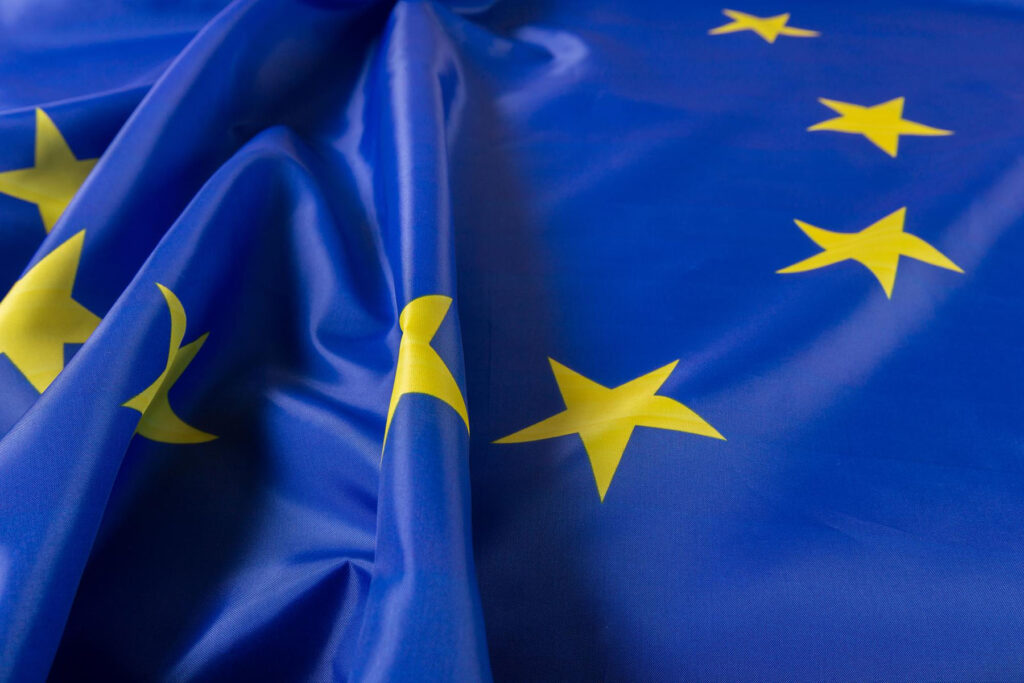
"Perfection of execution in any aspect of your question is our credo!"
Lawyer
A specialist in the practice of migration and corporate law, he also specializes in legal support for business in EU countries.
GDPR compliance for business
With the development and implementation of the General Data Protection Regulation (GDPR), businesses around the world were forced to review and improve their practices for processing and storing personal data of customers.
The emergence of such a comprehensive law was a consequence of the growing importance of privacy in the field of business and data security in the digital era.
What is GDPR and why is compliance important?
GDPR is EU legislation that regulates the collection, processing, and storage of personal data of EU citizens (in the case of businesses, and their counterparties).
The main purpose of GDPR is to protect citizens’ data and ensure control over their storage. Regardless of where a business is located, if it collects and processes the personal data of EU citizens, it must comply with GDPR requirements.

This law not only creates new privacy standards but also defines severe fines for violating these rules, which can significantly affect business.
Ensuring compliance with the GDPR (hereinafter – GDPR compliance) requires a systematic approach and consistent implementation of its key stages for the company.
Important steps in conducting high-quality and reliable GDPR compliance are the following:
- Company data audit. The first step in bringing a business into compliance with the GDPR is a detailed audit of all data that is collected, processed, and stored, which includes not only the personal data of customers but also the data of employees and other stakeholders. This will help determine the correct personal data processing process for the company by GDPR principles;
- Risk and privacy assessment. In the second stage, it is important to assess the potential risks to the privacy and security of data, in particular to counterparties. This includes the identification of possible threats and vulnerabilities in data processing systems, as well as the assessment of the possible consequences of violations for individuals whose data is processed, which will help to further develop a clear action strategy for the implementation of an appropriate privacy policy;
- Development of appropriate policies and procedures. Based on the results of the audit and assessment of risks for the privacy and security of counterparty data, each business must develop appropriate policies and procedures that meet the requirements of the GDPR, in particular: regarding data collection and processing, appropriate security measures for data storage, regarding rules for access to personal data, regarding the procedure for responding to detection of violations;
- Implementation of technical means of personal data protection. The next and no less important step is the development and implementation of the use of technical measures to protect the personal data of counterparties, in particular, appropriate methods of encryption and two-factor authentication. It is also necessary to introduce systematic audits of security and protection against information leakage, which will be provided by a separate team of company employees created for such purposes;
- Search for a qualified specialist for monitoring and reporting. Having a professional data protection and processing expert is a key element of successful GDPR compliance. But it should be borne in mind that depending on the amount of data that will be processed and stored, the most successful step will be to find not one specialist but to prepare an entire unit for the specified purposes, which will be combined into a strong and unified team by one person — DPIA by an officer;
- Constant updating and adaptability. The company must constantly monitor and update its own policy and procedures for the protection of personal data, taking into account changes in legislation and technologies, as well as feedback from counterparties.
Bringing GDPR compliance to your own business is first and foremost a legal duty of a conscientious and responsible entrepreneur.
Qualified lawyers of Prikhodko and Partners Law Firm are ready to help their clients with GDPR compliance by providing such services as consulting and providing a legal opinion on options for GDPR compliance in the company, engaging a specialist to conduct data audits, risk assessments, systematic monitoring and preparation reporting, a proposal for the development of a privacy policy for an individual company.

Conclusions.
Today, GDPR creates a secure environment for interacting with customers, increasing their trust and ensuring their privacy.
Businesses that make efforts to achieve compliance with the GDPR not only preserve their reputation, reducing the risks of violations in the field of storage and processing of personal data of counterparties but also avoid large fines for themselves.
Therefore, conducting GDPR compliance in the company is one of the important steps to achieving success in the EU market.
Calculate the cost of services
1 question
Have you done business in the EU before?
2 question
Have you done GDPR compliance for business before?
3 question
Do you need full GDPR compliance from our company?

A specialist in the practice of migration and corporate law, he also specializes in legal support for business in EU countries.
TOP lawyers dealing with such cases in Ukraine
How to order the service? How do we work?
Leave an application on the website in the selected service and our lawyers will call you to provide a detailed consultation and resolve your issue.
- Application
- Calling a lawyer
and defining tasks - Contract and payment
- Consultation,
case analysis, specialist work
What is the price for a lawyer's consultation and assistance?
Price for services in the "Corporate law" category:
| The name of the service | Price, UAH | Terms |
|---|---|---|
| Registration of ownership | from 8000 UAH | for 2 days |
| Liquidation of LLC | from 30000 UAH | for 3 days |
| Re-registration of a legal entity | from 5000 UAH | for 2 days |
| Help in opening a fop | from 5000 UAH | for 3 days |
| Development of the statute of the company (LLC) in Ukraine | from 10000 UAH | for 2 days |
| Change of the director of the joint-stock company | from 4000 UAH | for 2 days |
| CREATION OF INVESTMENT FUND AND MANAGEMENT OF ASSETS | from $5000 | since 6 months |
| OBTAINING A BANKING LICENSE IN UKRAINE | from $5000 | since 6 months |
| OBTAINING A LICENSE FOR A PAWN SHOP IN UKRAINE | from $5000 | since 3 months |
| Registration of a financial company | from $5000 | since 6 months |
You may also need:
Corporate law
Buy a financial company in Ukraine
Read moreCorporate law
Closing and Terminating an LLC in Europe
Read moreCorporate law
Mediation of corporate disputes
Read moreCorporate law
Increase of authorized capital
Read moreCorporate law
OBTAINING A BANKING LICENSE IN UKRAINE
Read moreCorporate law
Obtaining a license for an educational institution
Read moreCorporate law
License for gaming machine halls
Read moreCorporate law
License to import medicinal products in Ukraine
Read moreCorporate law
Introduction of corporate rights to the authorized capital
Read moreCorporate law
Increase in the authorized capital of the enterprise
Read moreCorporate law
LICENSE TO BETTING
Read moreCorporate law
Change of the director of the joint-stock company
Read moreArticles on the topic:
call back
during the day











